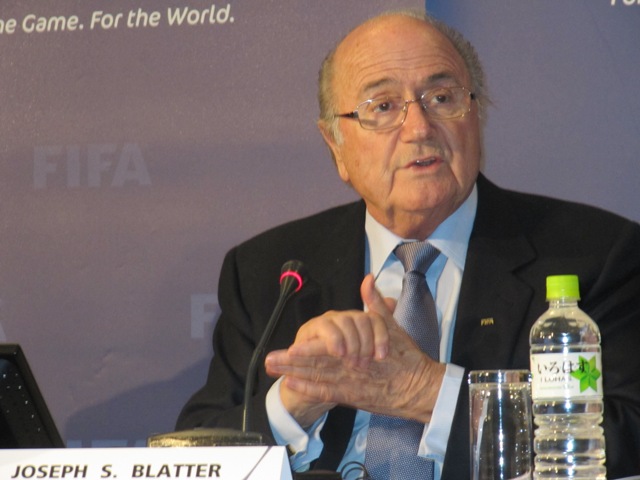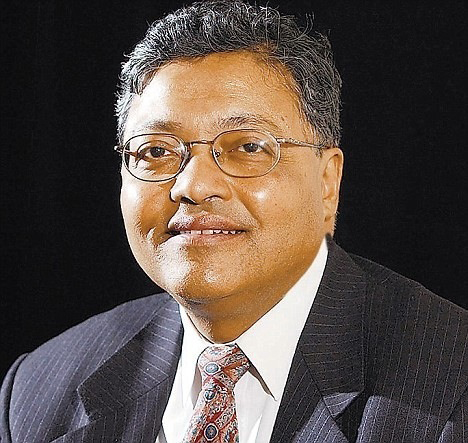Could 2012 be the year when football finally begins to accept that it can longer disregard the wider world?
2011 has been the year of the great “no”. The game tried hard to carry on with the fiction that all of football’s problems can be solved behind the front door of the family mansion irrespective of what the outside world may expect.
It has always been curious that the world’s most popular game is so conservative and resistant to change. Witness its enduring hostility to using technology for controversial decisions. This is despite the fact that it brings the game into disrepute. The result is that millions, who watch the game at home or in pubs, often know a referee has made a mistake, even a game changing mistake, while the referee is blissfully unaware.
I have no great hope that this historic tendency will change, or at least not in the foreseeable future. Too many of the game’s icons, led by Franz Beckenbauer and Michel Platini, are opposed to using technology and it will require a whole new generation of players to take over as administrators before this Luddite view changes.
However, 2011 ends with just the first glimpses that FIFA is prepared to accept that this talk of family values does not wash any longer. More so when so much of the family’s dirty linen is being washed in public. The signs are small but worth noting nevertheless.
The first such signals have emerged from the FIFA Executive itself, not least Sepp Blatter. When, in the summer, FIFA was nearly overcome by the worst corruption crisis in its history, many found it hard to believe that Blatter could be the man to clean up the organisation. There was doubt whether the Swiss wanted to do anything, let alone whether he could. However much that has emerged since, and in particular at the FIFA Executive Committee meeting in Tokyo in early December, suggests that this was not empty talk on the part of the FIFA President.
Blatter always faced a very interesting problem. Back in 1998 when he defeated Lennart Johansson to become president, he knew that there was a solid phalanx of Europeans, led by UEFA, hostile to him. Then he used his allies from the wider world, men like Mohammed Bin Hammam and Jack Warner, to neutralise the European threat. They helped him to go on to defeat Europe’s proxy, Issa Hayatou, head of African football, and win a thumping re-election in 2002.
But now that all these men are out of FIFA and Hayatou has, in Jacques Rogge’s phrase, been shown a “yellow card” following an investigation by the International Olympic Committee, Blatter has had to cope with a different European problem. This is a Europe extremely unhappy with all the talk of FIFA corruption. The unhappiness is particularly pronounced among those who run UEFA. Here they are running one of the best confederations in football, spearheaded by the Champions League, and they get smeared by the corruption surrounding FIFA. Many in Europe feel so alienated from FIFA that they can hardly recognise it as part of their family.

But that mood is changing and I am told that the FIFA Executive meeting in Tokyo played a big part in that change. There Blatter went a long way to convincing the Europeans that, while he may once have used Warner and Bin Hamman against UEFA, now he is one really of them who is just as keen as they are for a clean FIFA. The Europeans were much impressed when he told them he was ready to publish the damming ISL report which may identify whom at FIFA took bribes from that failed marketing organisation. What was holding him back, he said, was the fact that one of those named in the report had gone to the Swiss courts to stop its publication. So convincing was Blatter’s performance that it ended with the European members leaving Tokyo singing his praises.
This change of tune was also helped by the fact that Blatter had asked the UEFA member who been very vocal on this issue, Theo Zwanziger, President of the German Football Association, to look into FIFA statues. The German, who has also been critical of Qatar winning the right to host the 2022 World Cup, has the task to recommend whatever changes are necessary to make FIFA fit for purpose. Nothing will please the 66 year old lawyer more and this shows that Blatter has not lost his old touch. Not for nothing has he been known as the shrewdest sports politician of his time. Recent events may have damaged his reputation but the way he has brought Zwanziger into his tent shows his ability to manipulate sports politics is still alive and well.
It is interesting that a notable absentee at the Tokyo meeting was Ricardo Teixeira, the long time head of Brazilian football. He is said to be one of those named in the ISL report.
However, while Blatter may have won over the European members of his executive, for him to convince the world that FIFA is truly transparent, the ISL report has to be published. Following the Tokyo meeting, the Swiss courts have said they are prepared to release the report. But an unnamed individual who does not want it disclosed could appeal and this could hold up the process or even scupper it.
It is only when this long awaited report is published that we will know for sure that Blatter and FIFA’s promise of transparency is not just empty talk.
But world football needs to go beyond that and demonstrate that the world game can no longer hide behind the talk of family and solidarity every time there is a problem. Nothing illustrates this better than the Liverpool reaction to the punishment given to Luis Suarez for allegedly calling Patrice Evra ‘negrito.’ Suarez may not have meant to be offensive and negrito may be a common term in Uruguay but, in modern British culture, it counts as racial abuse.
The Liverpool reaction shows how football clubs cling to their family values. In essence what Liverpool is saying is: how can anybody dare criticise our player? We know what he is. He is not a racist, he did not mean to use the word racially and that is the end of the matter. This is where Liverpool’s family sentiments do not wash.
For football to be part of society, its players must reflect the prevailing values. Yes, there was a time when the word “negro” was not considered abusive. But then there was a time when slavery was acceptable. Society has moved on and so must football.
To do that football has to recognise that the modern game is a business whose standards of behaviour must conform to those we expect from bodies in the public eye. If Suarez was part of a corporate body, that body would have distanced itself from him and not indulged in the rhetoric and behaviour that Liverpool has.
FIFA’s publication of the ISL report will finally lead to the sort of transparency we expect from public organisations. Liverpool’s behaviour shows how far the rest of football still has to travel before it falls into line.
Mihir Bose is one of the world’s most astute observers on politics in sport and, particularly, football. He formerly wrote for The Sunday Times and The Daily Telegraph, and was the BBC’s head sports editor. Follow Mihir on twitter.
www.mihirbose.com

